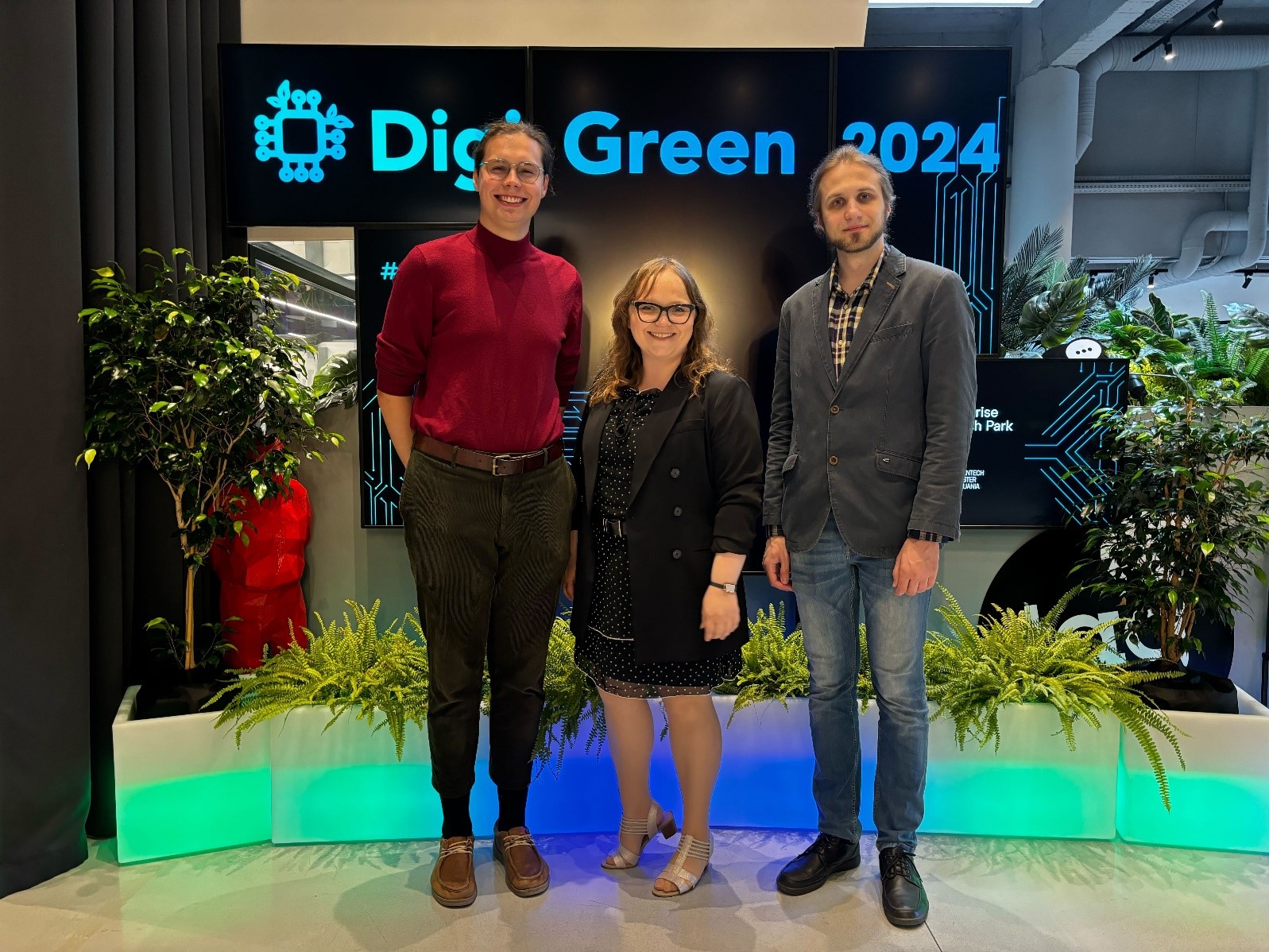VU LSC Scientists Present Enzymes for Degradation of Polyester Plastics at Digigreen 2024 Conference
 Plastic pollution is a significant issue for humanity, impacting both ocean and terrestrial ecosystems, as well as people's socio-economic well-being and health. Addressing this problem requires finding sustainable, environmentally friendly, and efficient methods to break down various types of plastics, reuse their by-products, and integrate them into the circular economy. This is a scientific challenge being addressed by young researchers at the Life Sciences Centre of Vilnius University (VU LSC).
Plastic pollution is a significant issue for humanity, impacting both ocean and terrestrial ecosystems, as well as people's socio-economic well-being and health. Addressing this problem requires finding sustainable, environmentally friendly, and efficient methods to break down various types of plastics, reuse their by-products, and integrate them into the circular economy. This is a scientific challenge being addressed by young researchers at the Life Sciences Centre of Vilnius University (VU LSC).
In June, the DigiGreen 2024 conference was held in Vilnius to discuss sustainable solutions and innovations in finance, environmental protection, and biotechnology. Representatives from VU LSC, including Vilius Malūnavičius and Jokūbas Daunoras (Assoc. Prof. Renata Gudiukaitė, working group leader) participated in the event.
V. Malūnavičius and J. Daunoras presented during the panel "The Science for a Cleaner Future: Deploying Engineered Enzymes Against Polyester Pollution" how to apply microorganism-native and/or protein-engineered enzymes to the degradation of polyester plastics.
VU scientists' research focuses on lipolytic enzymes from the genus Geobacillus. These bacteria are thermophilic, so the enzymes they synthesize work in a wide range of temperatures, including high temperatures. Scientists have been conducting basic research on these enzymes for years to understand and learn new information about them and how they can be modified to perform better in degradation or ester synthesis reactions. Polyesters include a wide variety of plastics with ester linkages.
"We decided to see if our enzymes could degrade polyesters and were pleasantly surprised to find that several enzymes that have been improved by protein engineering experiments can do so. The ultimate goal is to develop enzymes that can break down plastics such as polyethylene terephthalate (PET), the material used in plastic bottles, with efficiency and industrial applications. It would be great to develop a process whereby plastic degradation products can be reused to produce higher value-added products," said Mr Malūnavičius and Mr Daunoras.
The researchers are collaborating with recycling companies to create enzymes capable of breaking down various types of plastics.
"The team at the VU Innovation Office was intrigued by our technology and connected us with several recycling companies. Currently, our research is confined to the laboratory, but we aspire to see its widespread application in the future. We opted for the scientific approach to devise solutions that benefit individuals and their surrounding environment," stated the researchers.